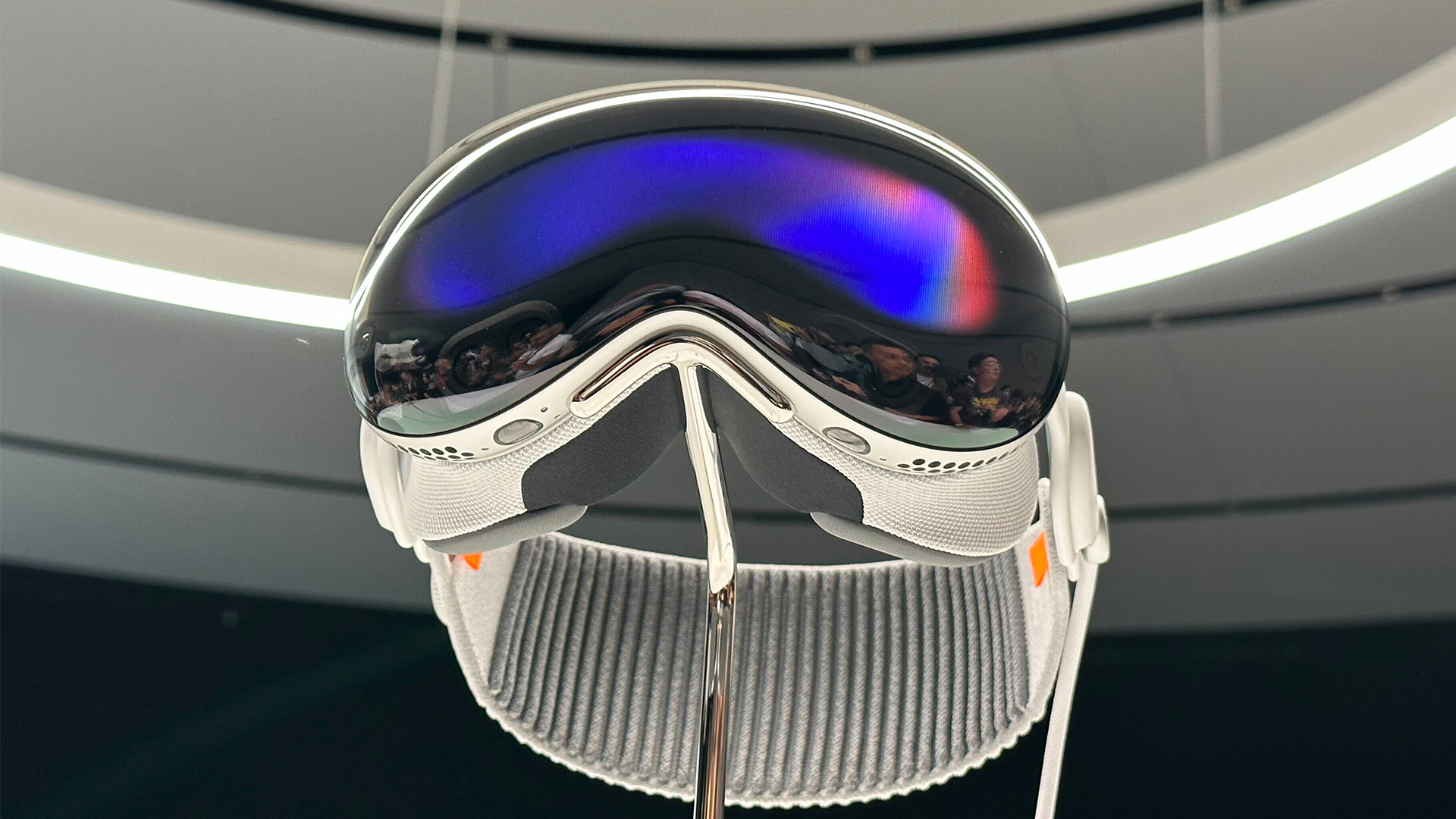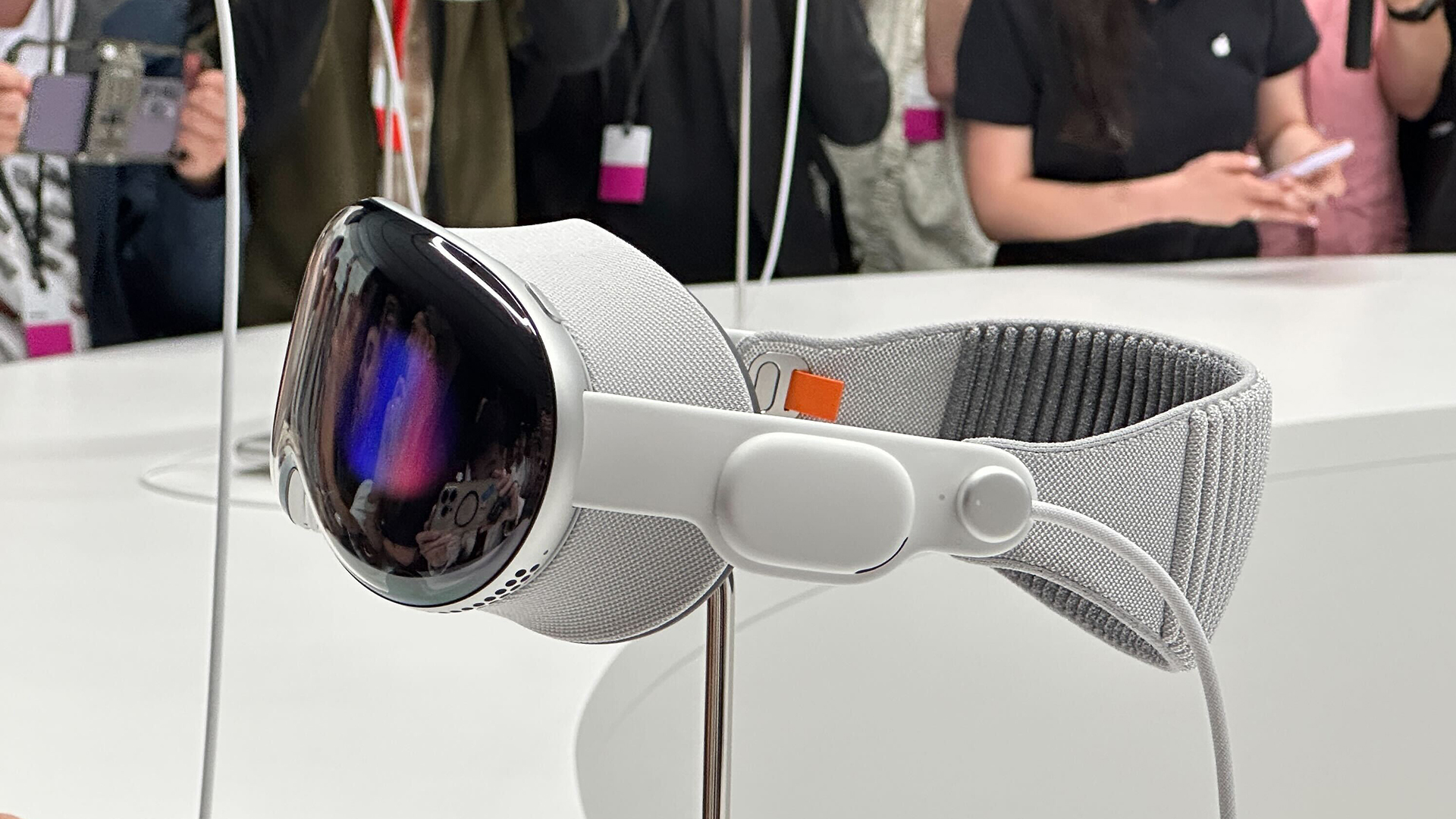
When Apple unveiled the Vision Pro headset at WWDC 2023, it revealed that it was targeting two key markets with the gadget: the workplace and home entertainment. But while the use cases of a “spatial computer” are exciting, the idea of virtual reality headsets replacing the best TVs could be a little way off.
Of course, as a gaming entertainment device, the immersive capabilities are an entirely different story and I suspect that will be another major pull for most buyers. But when it comes to watching a movie or TV show, there's a glaring issue that I think will stifle adoption for this particular use case – the fact that you can't share the screen with others.
The entertainment part of the Apple Vision Pro demo during the keynote is telling, as it gave a glimpse of what the lonely reality would be like to watch a movie or show with the headset on. Although SharePlay allows you to watch an Apple TV Plus show with friends and family in different locations, you would still all be wearing separate headsets by yourself and not be sharing the experience.
Given that the headset can only be worn by one person at a time, it is by design more suited to a solo experience, especially as it shuts the outside world out. There are solutions to making virtual reality a more collaborative and shared experience though.
For instance, there's the possibility that virtual avatars could always join you in a virtual living room, which would allow you to be together (albeit digitally). We could even see virtual cinemas filled with virtual avatars of people in the future like what's portrayed in sci-fi films.
This would rely on multiple people owning virtual headsets though. And for now, the idea of a household not just owning one Vision Pro headset, but multiple is currently far-fetched when considering the high-end price tag of $3,499, which is just one of the 12 things you need to know about the mixed-reality headset. However, this could change in time of course as the technology becomes more cheaper.

A virtual 3D theater experience
While Meta and Google have demonstrated similar technologies for shared virtual spaces, Apple’s headset aims to create a virtual 3D theater experience with a relative 100 foot screen. The company has even partnered with Disney Plus to bring its movies and shows to the headset ready for when it launches in 2024.
Disney’s CEO Bob Iger took the stage at the keynote to discuss the potential of the Vision Pro, saying that you could go to Disney World, sports arenas, live concerts and more from the comfort of your own home. No other streaming partnerships were announced at the launch, but there's certainly scope for more content tie-ups to come.
Whether the Apple Vision Pro is the new 3D TV is still debatable for me. No matter whether you think 3D movies are great or 3D movies are dead, watching a movie or TV show with friends and family is a shared experience. And looking at the progress in the virtual reality headset consumer market, it's still a little while away until headsets are as commonplace as phones.
Batteries not included?
With micro-OLED technology that packs 23 million pixels into two displays to produce a 4K display, 12 cameras to track hand and eye movements – one of which you can use as an actual 3D camera – five sensors, six microphones and three-element lenses, the Vision Pro is one of the most (if not the most) premium virtual reality headset that's coming to market.
However, with all of this next-generation tech, engineering issues are likely to surface when trying to cram it all into a small space. And it appears the battery was a difficult part of the build. The long cord trailing to an external battery pack has been criticized for its design and we can see why, especially given that it will take you out of the immersive virtual reality you're in. But I think there's a bigger problem with it.
The fact that it has a limited two hour charge capacity makes it unsuitable for watching movies, now that most blockbusters run longer than 120 minutes. Of course, there's the physical cord that can power the headset, but if you're on a plane for instance, which is a use case that Apple demoed at the keynote, that may not be an option.
I'm yet to get my hands on one so my feelings may change (the rate of technological adoption does have a way of surprising), especially when developers start to release new apps on it.
But if you want to hear from someone who has tried the Apple Vision Pro read our Editor In Chief's Apple Vision Pro hands-on – for him, it was the immersive interactive content that blew his mind the most.






